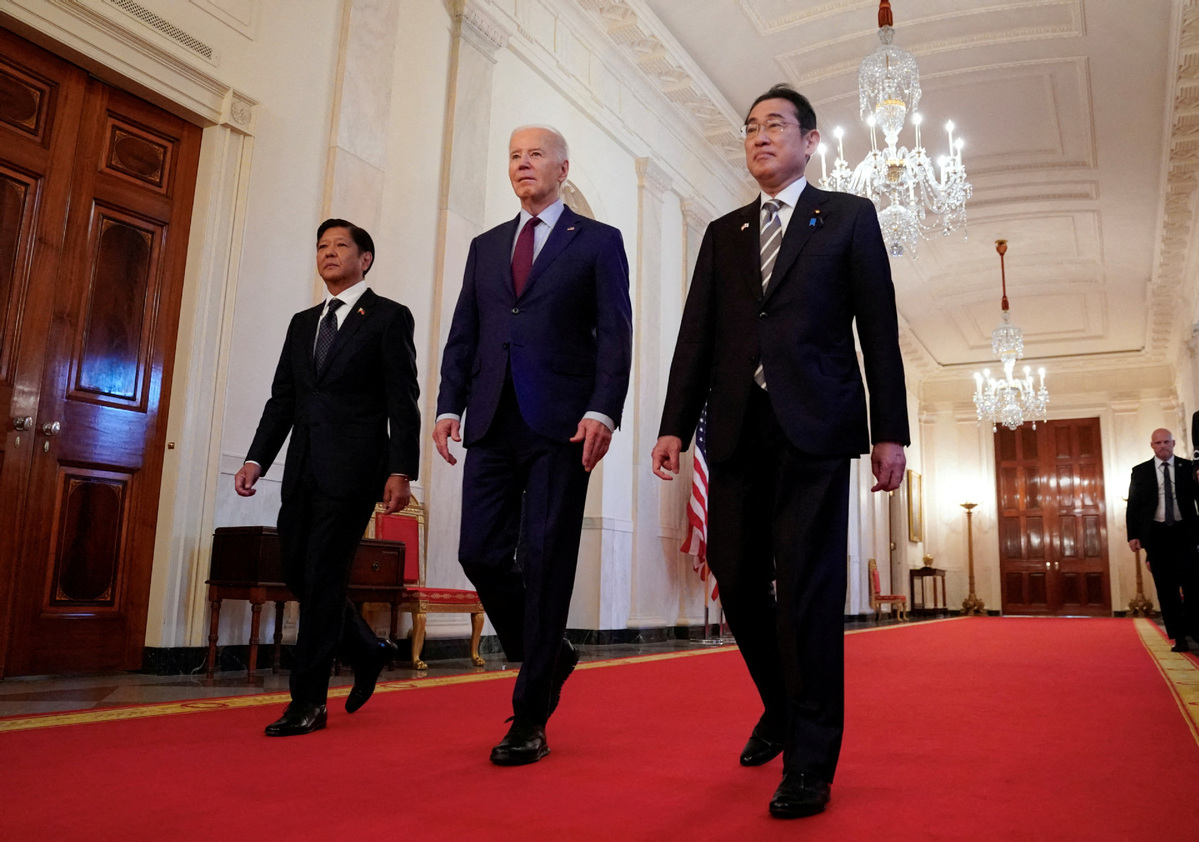Trilateral summit raising regional tension: Experts
By PRIME SARMIENTO in Hong Kong | China Daily Global | Updated: 2024-04-15 09:44

The first-ever trilateral summit among the Philippines, Japan and the United States has escalated, rather than defused, tensions over the South China Sea, and even "hardened" the stance of the parties involved in the disputed but otherwise calm waterway, analysts say.
The Philippines' involvement in the "provocative" April 11 summit has also made the country an "outlier" in the Association of Southeast Asian Nations, as member states of the regional bloc prefer a "nuanced "approach in resolving the dispute over the South China Sea, they said.
US President Joe Biden hosted a summit in Washington, DC, where he met Japanese Prime Minister Fumio Kishida and Philippine President Ferdinand Marcos Jr.
In a joint statement issued at the conclusion of the summit, the three leaders committed to developing a partnership on inclusive growth, infrastructure and emerging technologies, clean energy and security.
However, a readout issued after the summit quoted Biden as saying the summit reinforced the ironclad US-led alliance's commitment to the Philippines under the US-Philippines Mutual Defense Treaty and that this "extends to armed attacks on Philippine armed forces, public vessels, or aircraft — to include those of its Coast Guard — in the Pacific, including anywhere in the South China Sea".
Lucio Blanco Pitlo III, research fellow at the Manila-based Asia-Pacific Pathways to Progress Foundation, said the trilateral summit did not aid in de-escalating tensions but rather contributed to hardening the positions of the parties to the dispute.
Pitlo cited the joint maritime exercise held on April 7 in the South China Sea by Australia, Japan, the Philippines and the US, and how China announced it would undertake similar drills.
Provocative alliance
Anna Rosario Malindog-Uy, vice-president for external affairs of the Asian Century Philippines Strategic Studies Institute, said the trilateral alliance is "in many ways, provocative".She said it could exacerbate regional tensions, spur an arms race and threaten peace and stability in Asia-Pacific.
Bilveer Singh, associate professor of political science at the National University of Singapore, said that by joining the summit, the Philippines has "militarized" its position over the South China Sea.
Malindog-Uy said the Philippines is being viewed by other ASEAN countries as a "pawn of US interests in the region" owing to its "belligerent stance and approach" toward China and its involvement in the alliance.
























